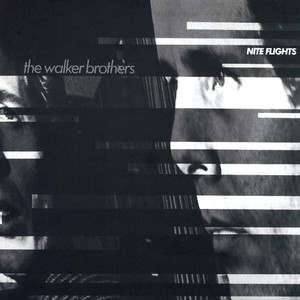
- 歌曲
- 时长
-
Disc 1
简介
by Dave ThompsonEvery once in a while, an album comes along that doesn't simply surprise you, it takes you down an alleyway, rips off all your clothes, then hares away with your socks on its head, singing selections from South Pacific. And just before it disappears from view, you notice that David Bowie, Iggy Pop, and Brian Eno are cavorting alongside it, sharing the spoils and plotting further misdeeds. The fact that the original miscreant then shrugs them aside and tears off on its own is neither here nor there. What matters is, when Scott Walker set to work (somewhat reluctantly, one feels) on the third post-comeback Walker Brothers album, that was the impression which he had in mind. Of course it wouldn't quite work out like that. Whatever else they may have been, as their rebirth accelerated towards its gory end, the Walkers remained a democracy, splitting vocals and songs between the three non-siblings, and only occasionally allowing any one the upper hand. But whereas John was still locked into the art country balladeering which had always been his forte, and Gary was having trouble completing his allotment, Scott had finally realized that he had more to offer than another Kris Kristofferson outtake. As a writer, he had been all but silent since the late 1960s, when his peculiarly twisted post-pop visions sent solo album after solo album hurtling into a commercial void. Now, however, he was reaching back into that abyss, and emerged with four songs -- "Niteflights," "The Electrician," "Shut Out," and "Fat Mama Kick" -- which not only realigned his entire future career, they also twisted the on-going landscape of rock music itself. Electro-pumping soundscapes of grandiose synth, all four were clearly inspired by Bowie's recent work with Iggy and Eno. But they took that role model so much further that within the year, they themselves were delineating much of what Bowie himself would accomplish on his own next two albums (Lodger and Scary Monsters). Elsewhere, Midge Ure later confessed that "The Electrician" inspired him to write Ultravox's "Vienna," and, from there, one can project the entire new romantic/synth-pop movement from Walker's presumably unwitting role models. In a perfect world, Scott would have completed the entire album himself, or at least been given an EP to himself. But of course that was not to be, and so Nite Flights appeared with the rest of the boys, the rest of the baggage, and, though both John and Gary at least tried to keep up with their bandmate, their failure was as painful as it was inevitable. Gary's "Death of Romance" and John's "Disciples of Death" are at least vindicated by their titles, but the songs are as thin as their composers voices and could be outtakes from another album entirely. They're certainly from another planet.







